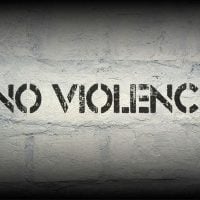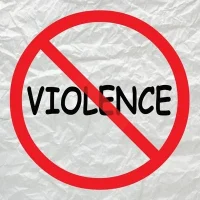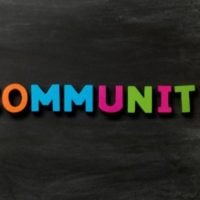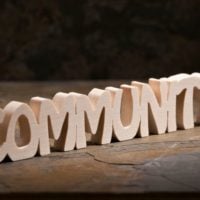Deadline: 30-Apr-23
UN Women is seeking applications to strengthen the institutional capacity of a civil society organization working in the area of increasing women’s political participation.
The grant is therefore expected to increase the resource and capacity of an eligible CSO to address Violence Against Women in Politics and there by advance the rights of women to participate in public and political life and enable them to become agents of transformative change towards an equitable society.
Among the many barriers to political participation faced by women, Violence Against Women in Politics (VAWP) constitutes a major obstacle to women’s participation in politics and hinders the realisation of women’s political rights and closing of the gender gap in politics. Both the threat and the reality of violence have a powerful negative effect on women’s participation as voters, candidates, election officials, media representatives, activists, and political party leaders. Zimbabwe’s political landscape is characterized by violence in all its forms, including sexual, physical, emotional, and psychological violence. VAWP is also used to deter female political aspirants who are perceived to be deviating from their stereotypical role to seek political positions.
Funding Information
- The budget range for this proposal should be US$ 300,000.00 – 499,000.00 (Min. – Max.1)
Timeframe: The engagement sessions for media practitioners, CSOs, Members of Parliament (MPs) and the Women’s Parliamentary caucus on VAWP should commence after the Harmonized Elections of 2023 and be completed before end of March 2024.
Consequences
Violence Against Women in Politics (VAWP) can take place both online and offline and it manifests in different ways including:
- Physical violence: e.g., assassinations, kidnappings, beatings, property damage.
- Sexual violence: e.g., rape, sexual harassment, sexualized threats.
- Psychological violence: e.g., threats, character assassination, denial of salary, stalking and online. Survivors of VAWP can be political office holders, women candidates and aspirants, political supporters, voters, election workers and observers, public officials, civil servants, media workers, human rights defenders, and family members of any of these individuals.
- Physical consequences: e.g., sexually transmitted infections, including HIV, unwanted pregnancies, unsafe abortions, gynaecological problems, physical injuries and in some cases death.
- Psychological consequences: e.g., non-pathological distress (such as fear, sadness, anger, self-blame, shame, sadness, or guilt), anxiety disorders (including posttraumatic stress disorder), depression, medically unexplained somatic complaints, and alcohol and other substance use disorders, as well as suicidal thoughts and self-harm.
- Social consequences: e.g., social exclusion, discrimination, rejection by family and community, and consequently further poverty.
- Broader political and institutional consequences: VAWP is a deterrent to women’s political participation and political rights and processes. It hampers political and electoral processes and institutions’ credibility and legitimacy, dissuading women to continue a political career, engage in political processes, and discourages young women to enter politics.
Required Results
- Roll out Pre-election live theatre performance
- The Implementing Partner will roll out two existing short plays on VAWE to 15 selected communities across 6 provinces. The IP will partner with the theatre company that developed the two short plays under a previous initiative.
- Convert existing plays into radio plays to be aired in the pre-election period
- The short plays should be converted into two radio plays, recorded, and aired on radio stations across all ten provinces in Shona, Ndebele and English.
- Develop Pre-election visual and written art advocacy and communication materials
- To supplement the message of the plays, and to reach an even wider audience, content on VAWP, the IP will develop IEC materials such as comic books and posters. These will be printed and disseminated at at the performances, shared with various CSOs, grassroot actors doing community outreach on the topic of VAWP, as well as published in newspapers, online and on social media.
- Conduct Pre-election media engagement
- To carry out continuous engagement with communities through mainstream media such as TV, radio and newspapers through TV and radio shows, infomercials, articles etc.
- Conduct engagement sessions for media practitioners, CSOs, Members of Parliament (MPs) and the Women’s Parliamentary caucus on VAWP
- The IP will be required to carry out engagement sessions for CSOs, media practitioners, Members of Parliament (MPs), and the Women’s Parliamentary Caucus on VAWP and on mental health/wellbeing for women in politics will be organised. CSOs represent important allies in the fight against VAWP, particularly in terms of advocacy and awareness raising. The media is a terrain most women politicians feel threatened by, as the coverage seems to push them off the news agenda or to be targets of hate speech and sexist and insensitive portrayals. Additionally, often women in politics are objectified and sexualised by the media and their comments and behaviours are often over-emotionalized. The problem of VAWP exists even within Parliament itself, for this reason MPs and the Women’s Parliamentary Caucus should be engaged on VAWP and wellbeing for women in politics.
Competencies
- Technical/functional competencies required:
- Documented knowledge and experience within the area of women’s political participation.
- Experience with carrying out logistically complex initiatives.
- Experience in training and facilitating stakeholders on gender equality, women’s political participation and Violence Against Women in Politics.
- Proven experience facilitating high level as well as community and grass root consultative workshops for Governmental Institutions, development partners, Chapter 12 Institutions, community-based organisations and CSOs.
- Demonstratable experience in developing IEC materials.
- Experience with engaging media for advocacy.
- Experience working on inclusive politics in a fragile context, with demonstrated ability to deliver.
- Experience in mobilising communities on advocacy initiatives.
- Duly registered under the laws of Zimbabwe.
- Other competencies, which while not required, can be an asset for the performance of services
- Documented knowledge and experience with mental and emotional health issues.
For more information, visit UN Women.









































